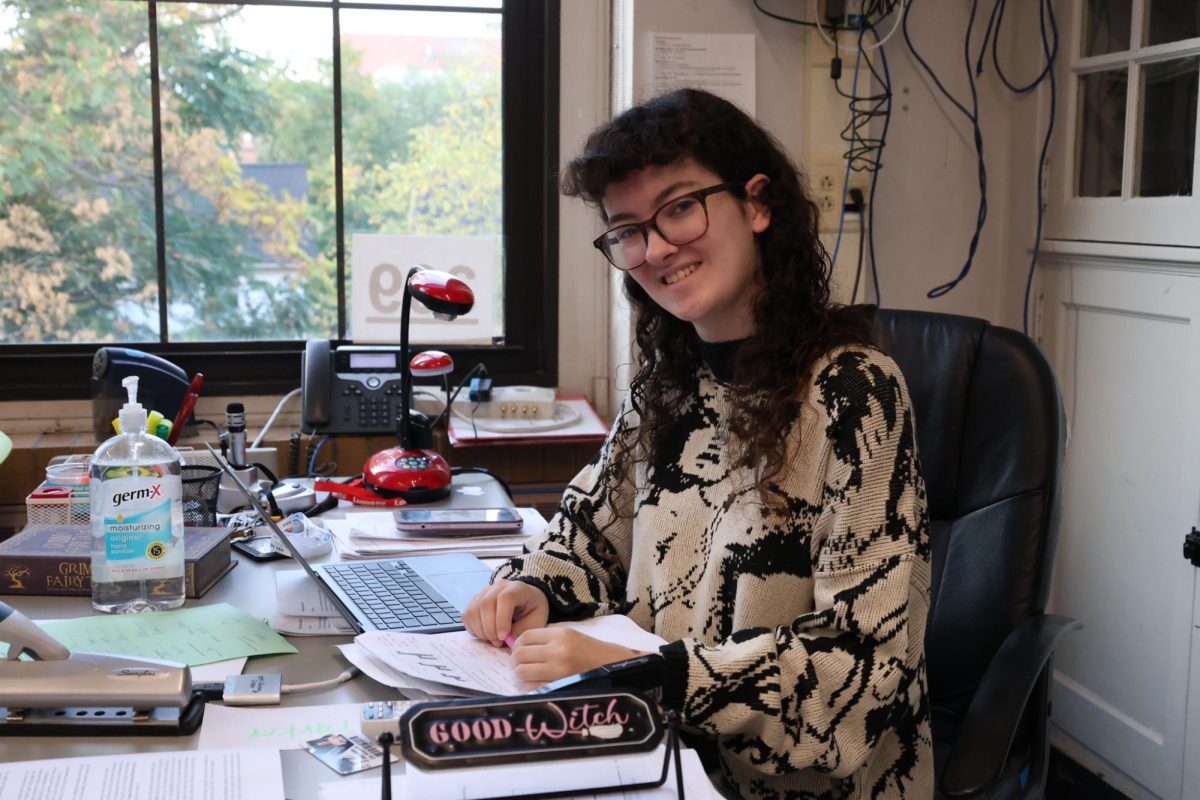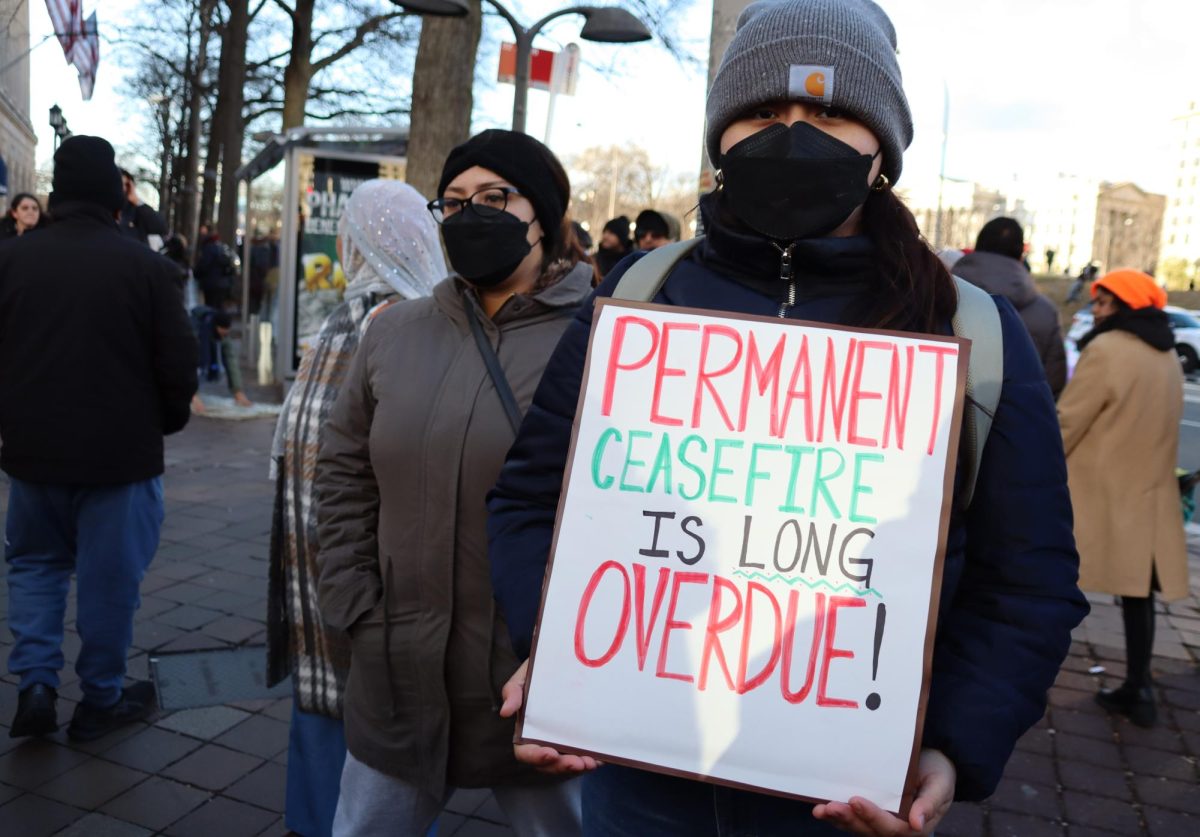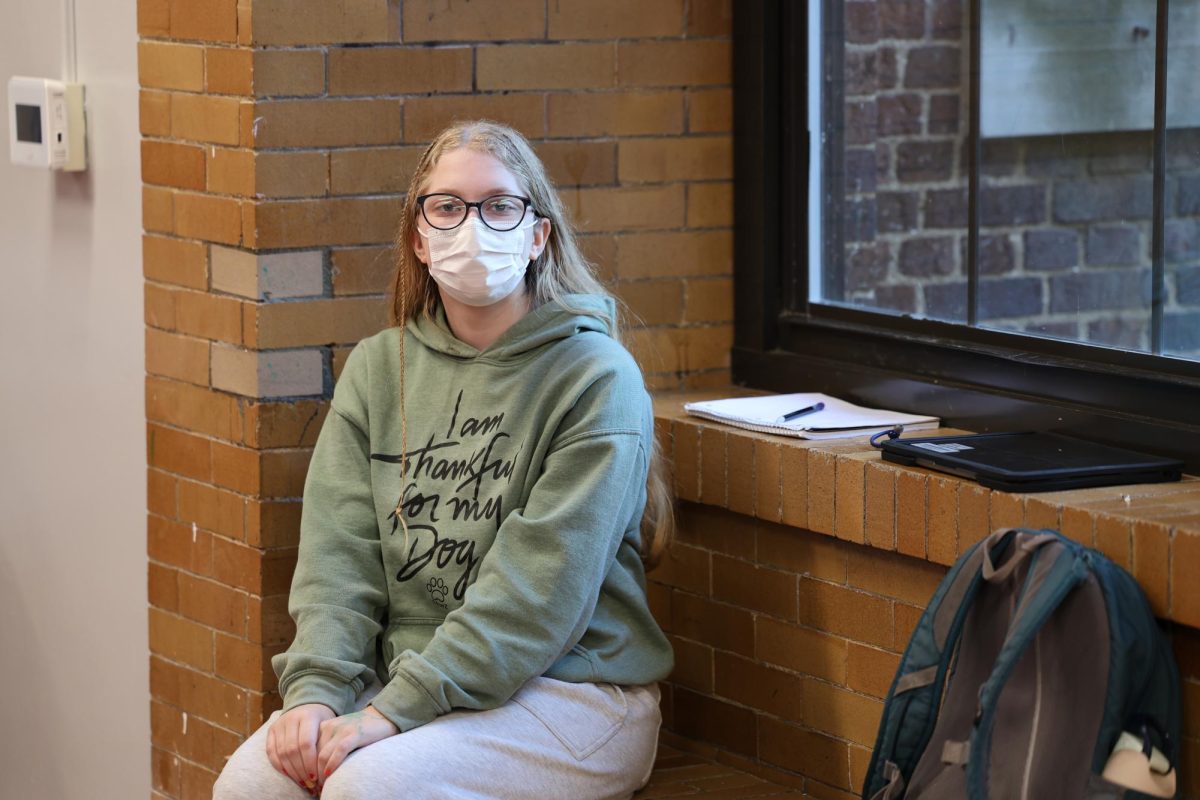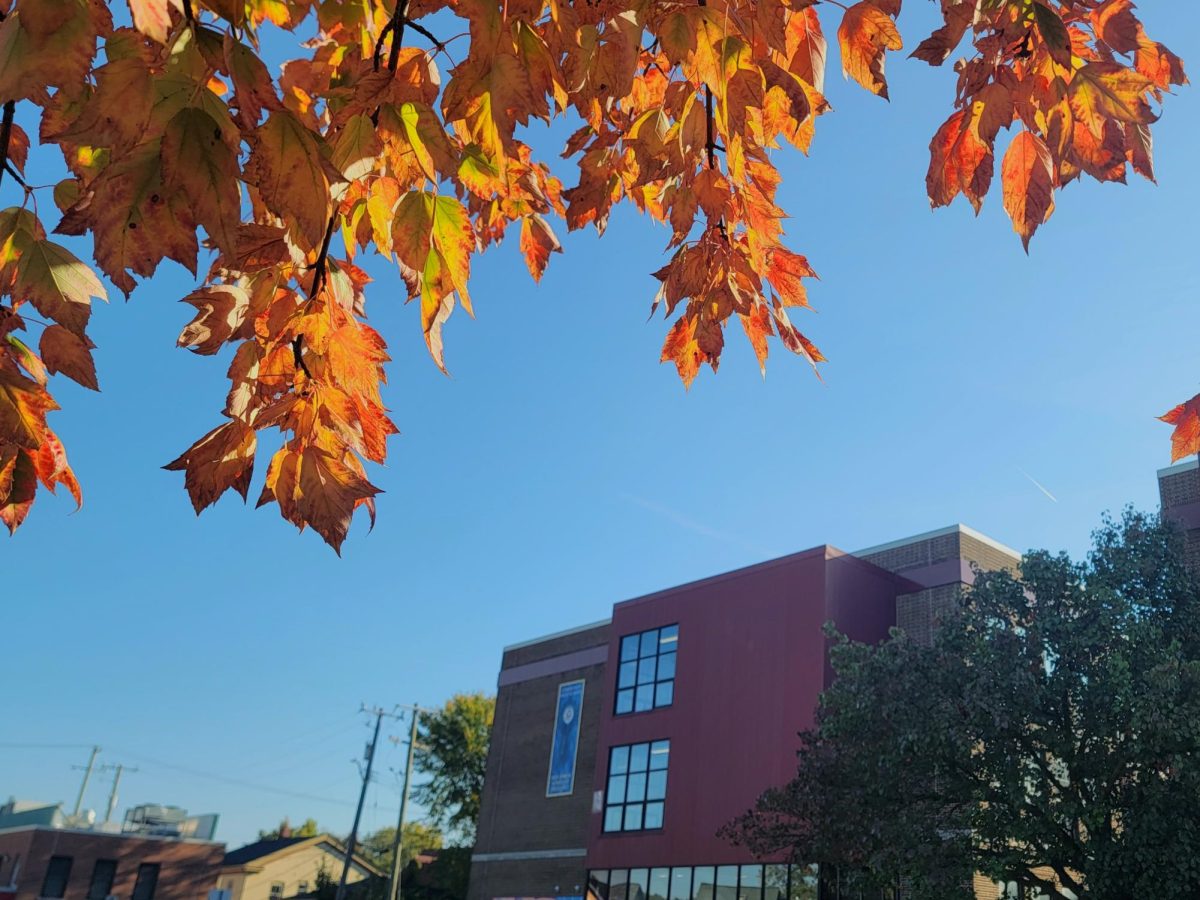There are a lot of factors that students think about when choosing a college. For me, one of the most important ones was how well universities could handle my food allergies.
I have lived with food allergies my whole life — from carting my cupcakes to birthday parties to bringing my buns to barbeques, safety has always been at the top of my mind.
I was diagnosed with a peanut, tree nut, and sesame allergy when I was only 18 months old. This meant that my parents had to remove all of these foods from the house and I had to be extremely careful in public about cross-contamination. As I grew older and after visiting my allergist annually, I outgrew some of my allergies. In 2020, I started oral immunotherapy where I ate 0.5 mg of peanut powder mixed into a soft food. The dose gradually increased, and now the medication that I take every night is four Reese’s Pieces. Ingesting these daily allows me to not worry about cross-contamination with peanuts as much (I still have to worry about the tree nuts that I am allergic to).
So, when it came to looking into colleges, I knew I wanted to attend a place where I would be safe.
Earlier this year, I spoke with Cate Weiser, an alum of CHS and a sophomore at the University of Chicago who is allergic to eggs, peanuts, tree nuts, and fish. Weiser told me about how UChicago has an allergy station in the dining halls which is free of the top 8 allergens, but it is also catered to those that are into eating healthy. Sometimes she prefers to eat what her friends are eating but the allergen-free option is not similar. After hearing about the allergen alternatives of cauliflower rice and steamed quinoa, I knew that I wanted to attend a university where I could enjoy my food.
Recently, I committed to the University of Wisconsin–Madison. One major reason I picked this school over the 15 other universities I applied to is because of how they handled my food allergies during my visit to the university. When I walked into the dining hall, I immediately noticed the labels above all of the food options, showing which allergens they contained. I was then able to talk to a chef and was told that they rarely serve nuts, and if they do, it will say so on the labeling. They also always clean down the areas before and after each use. This was one of the two schools (the other was American University) where I was able to eat a dessert (I am rarely able to eat desserts outside of my house).
After visiting, I found out that according to Spokin, UW-Madison is ranked #18 in the Top 100 Food Allergy-Friendly Colleges 2023.
Throughout my college process, I never had any allergy scares, but I did get anxious due to how some schools handled food allergies. When this happened, I knew that I would not be attending that school.
I applied to a total of 16 schools, however I did not tour all of them. From my own experience, American University, Michigan State University, UMass Amherst, University of Vermont and University of Wisconsin all knew how to handle allergies well. On the other hand, Muhlenberg College and Rice University did not handle allergies as well.
Making this decision was hard for me, however, once I made it, I knew it was the right one.
















